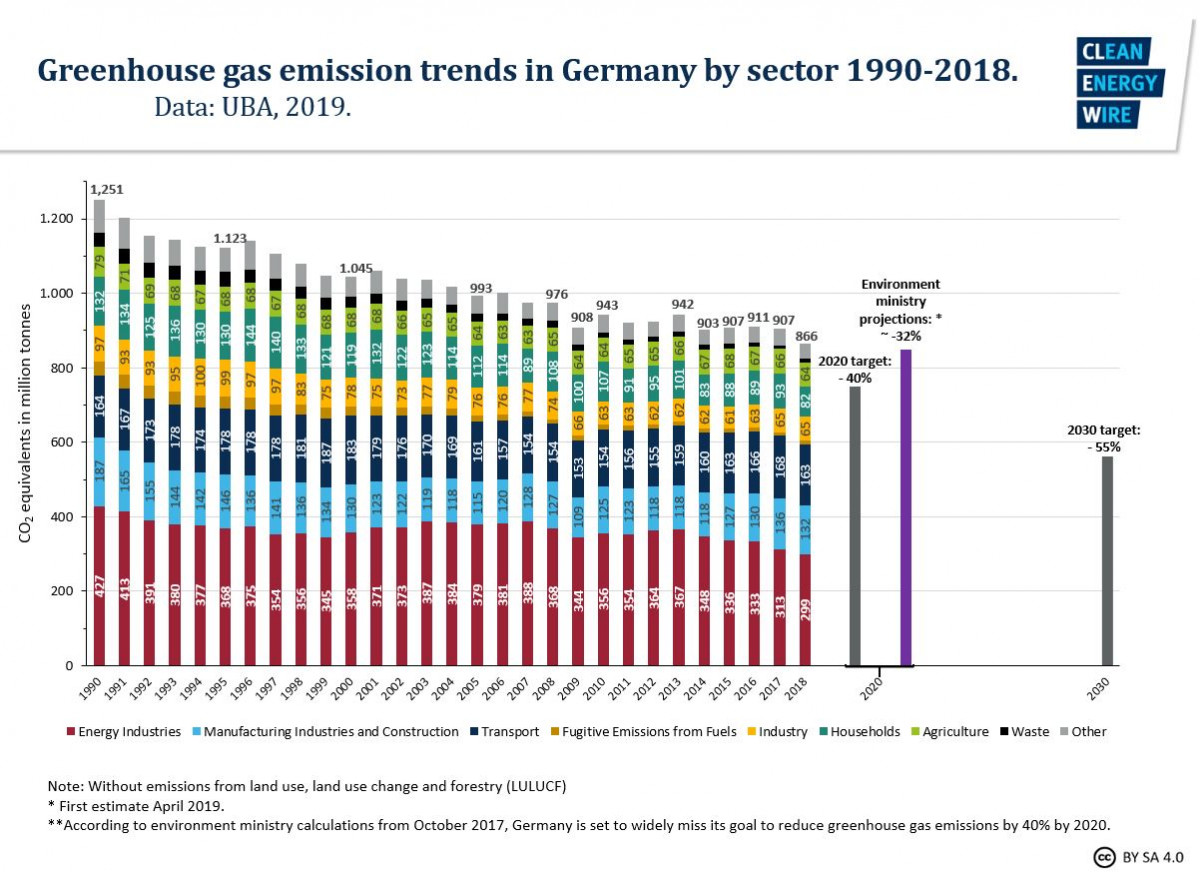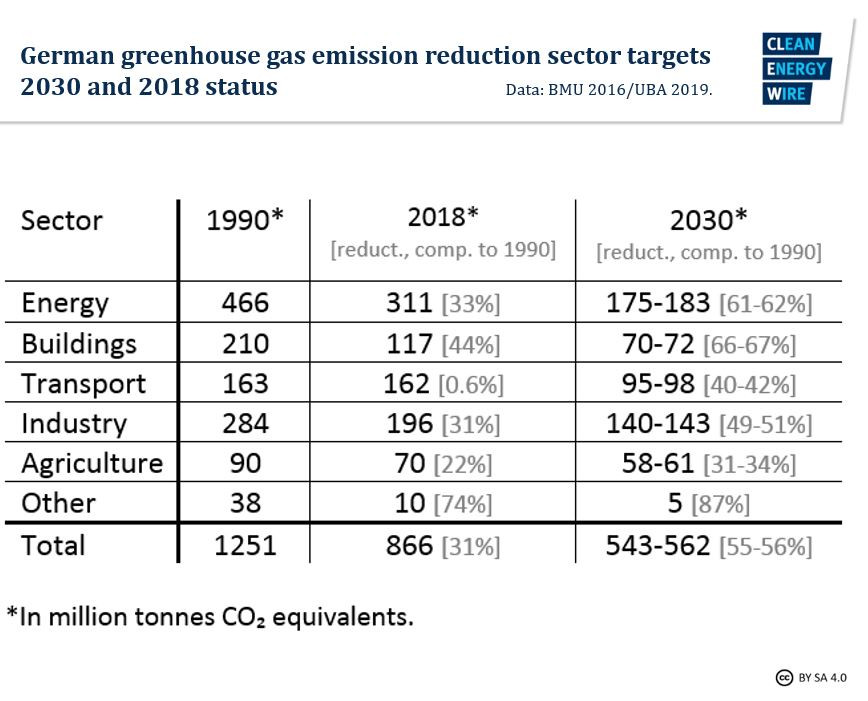Govt Energiewende report: “enormous efforts needed” in transport and buildings
The transportation and building sectors continue to be the problem children of Germany’s energy transition. “Enormous efforts” are needed to reduce energy consumption in both sectors to ensure Germany reaches its climate targets, according to a leaked draft of the economy ministry’s (BMWi) upcoming Energiewende Progress Report 2019.
The 300-page document, seen by Clean Energy Wire, concludes that Germany is on track to achieve — and surpass —the aimed share of renewables in electricity and final energy consumption next year. But the country is not reducing its overall energy use fast enough.
In fact, the amount of energy used in transportation in 2020 and 2030 is even projected to exceed the levels of the baseline year, 2005.
Germany is bidding farewell to nuclear energy, expanding renewable energy production and aiming to make its economy largely climate-neutral by mid-century. Europe’s most populous country initiated the decades-long overhaul of its economy — the Energiewende — with broad public backing and cross-party support. To monitor the progress of this endeavour in all economic sectors, the economy ministry publishes an annual Energiewende Monitoring Report.
Every three years, the ministry releases a Progress Report instead. It provides broader context and more in-depth analysis with a longer-term time horizon. The version seen by Clean Energy Wire – a draft primarily analysing 2017 data and warning in many places that updated data still has to be added – will now be reviewed by other ministries. The final report is expected in May or June 2019. The draft also did not include an opinion by the independent expert commission on Energiewende monitoring, which accompanies every report and contains recommendations for future policy decisions.
Without additional measures, Germany will miss 2020 and 2030 climate targets by wide margins
Germany’s greenhouse gas emissions saw their largest drop since the 2009 recession last year, but the country is still on track to miss its goals by a wide margin, according to data from an unpublished emissions projection from the environment ministry included in the draft.
“A wide gap can be assumed for the years 2020 and 2030, with the measures implemented so far. The target path represents an enormous challenge,” says the draft.
The projections take into account all climate measures decided by summer 2018. Therefore, it does not take into account a commission proposal to gradually phase out coal by 2038 at the very latest. If no other measures are taken, Germany will reduce greenhouse gas emissions by 33 percent by 2020, falling short of the national target of 40 percent, according to the report. Ten years later, international and European agreements require the government to bring down emissions by at least 55 percent below 1990 levels. But the data indicates Germany is on track to reduce greenhouse gas emissions by only 42 percent.
To bridge the gap between climate targets and current emission trends, German Chancellor Angela Merkel has introduced a "climate cabinet" to ensure more progress on emissions reduction. The group of ministers with key responsibilities related to climate issues are supposed to come up with a package of legislation to ensure Germany reaches 2030 climate targets, to be introduced by the end of the year.
Additional climate measures in transport and buildings sectors urgently needed to avoid penalty payments
Germany’s government is under pressure to complete the package of measures and legislation to avoid falling short of its targets, which would require the country to make costly payments to purchase emission allocations under the European Union’s effort-sharing regulation. Under that framework, Germany must reduce overall emissions from sectors not covered by the European Union Emissions Trading System (EU ETS), such as transport, buildings and agriculture, by 14 percent by 2020, compared to 2005 levels.
The leaked draft does not include details on the emissions projections in those sectors. However, the draft states: “Ambitious national measures are urgently needed to reach [the 2020 effort-sharing] goal.”



